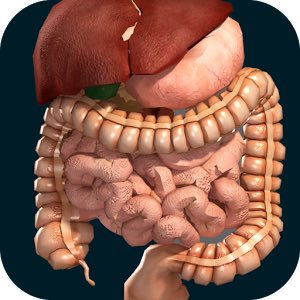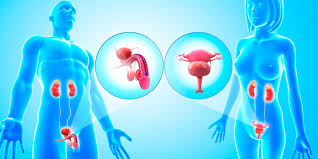Have you heard of a Canadian woman who had her lungs removed for six days while waiting for a transplant?

It is the first case in which such a radical procedure has been used and which has saved this woman’s life.
We would all like to be able to always keep all our organs, but contrary to what we think we could live without any of them without any problem.
Surely you know other people who lack an organ, or part of them, like Pope Francis who is missing part of one of his lungs. When he was younger they had to remove a part of the lung to treat an infection.
Can we live without some organ?
Organs that you could do without
1.The lung
We have two lungs that are divided into sections called lobes. It is necessary to have at least one lung in order to live. If all or part of a lung is removed, the remaining lung can expand to take over part of the lung work removed.
Living with a single lung does not usually affect daily tasks or life expectancy, although a person with only one lung may have more difficulty performing activities that require much effort than a healthy person with both lungs.
2.The kidney
We all have two kidneys, but we only need one to survive.
There are people who are born with a single kidney, others have to be removed after an injury or illness, or there are even people who have only one kidney because they have donated it.
In general, people with only one kidney have few or no health problems, and a normal life expectancy.
Technically, a person could live without kidneys, but would need to undergo regular dialysis, which is to use a machine that filters the blood and removes waste.
You can live with a single kidney
3.The spleen
The spleen filters the blood and helps the body fight infections, but it is not essential for survival.
A person can live without a spleen, although they tend to be more prone to infections.
4.The reproductive organs
Women can live without any problems; without uterus and ovaries. For the treatment of cancer, uterine fibroids, chronic pelvic pain and for many other reasons, some women undergo a hysterectomy.
Men can also live without testicles. One of the reasons why they are usually excised is as a treatment for testicular cancer.
5.Stomach
Sometimes as a treatment for a stomach cancer it is necessary to remove the entire stomach, this is what is known as total gastrectomy.
After a total gastrectomy, the small intestine is connected to the esophagus, and for a few weeks, while the patient recovers, nutrition through a vein will be necessary.
After that, they are able to eat most of the food, but with some precautions such as making smaller meals or taking dietary supplements in case there are problems of absorption of vitamins.
6.The colon
Some treatments, such as colon cancer or Crohn’s disease, or even as a prevention of some diseases may require removing the colon.
We can live without the colon. To collect stool it will be necessary to use a special bag outside the body or create a pocket in the small intestine that performs the function of the colon through a surgical procedure.
7.The appendix
It is not clear what its function is, but it can be eliminated if it becomes inflamed or broken.
And then there are the organs with which you can live with only one part, such as:
8.The liver
You cannot live without it, but you only need to keep a little so that the liver itself can regenerate to its normal size.
Many of the liver transplants are made from living donors. A part of a liver is removed from a healthy person and used to replace the liver of a sick person. In both people, the liver will grow again until it reaches its full size.
9.Brain
In some patients with severe seizures, a hemispherectomy is performed, that is, surgery to remove one of the two hemispheres of the brain, in order to stop seizures.
Surprisingly we can “live well” with only half a brain, however some consequences would appear such as loss of mobility in the arm and vision in the opposite eye to the side of the brain that has been removed.
After reading all this, the conclusion we draw is that in order to lead a truly wonderful and fulfilling life, we need all of our organs, and we need to keep them all in a healthy state.
We should all appreciate the fact that our organs are performing necessary functions and that it is important to keep them healthy, even if we cannot see or feel them.














